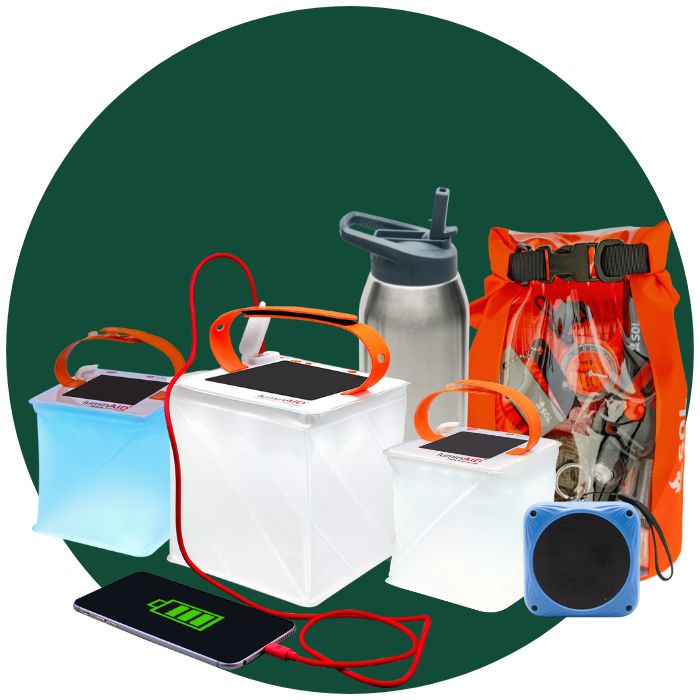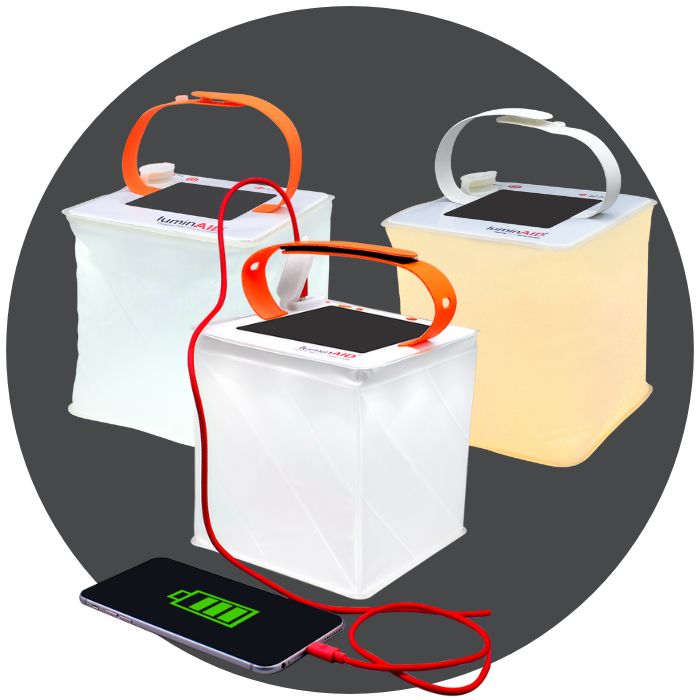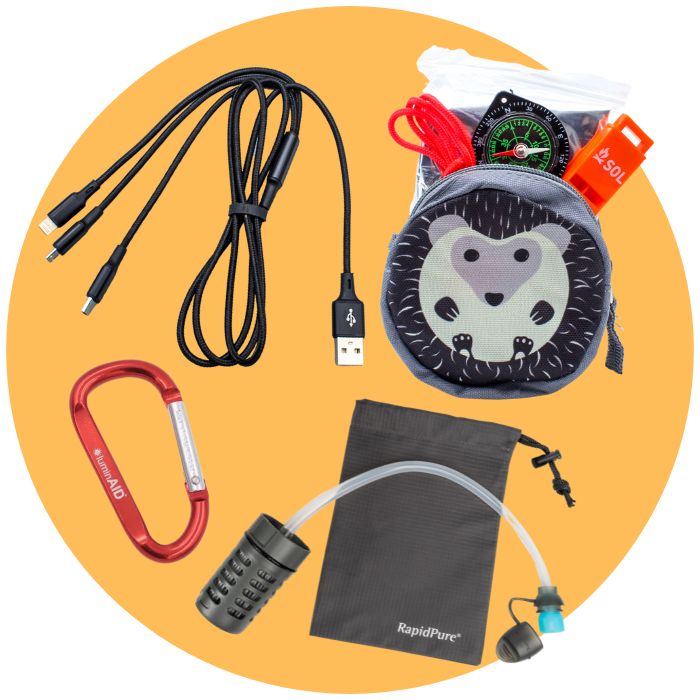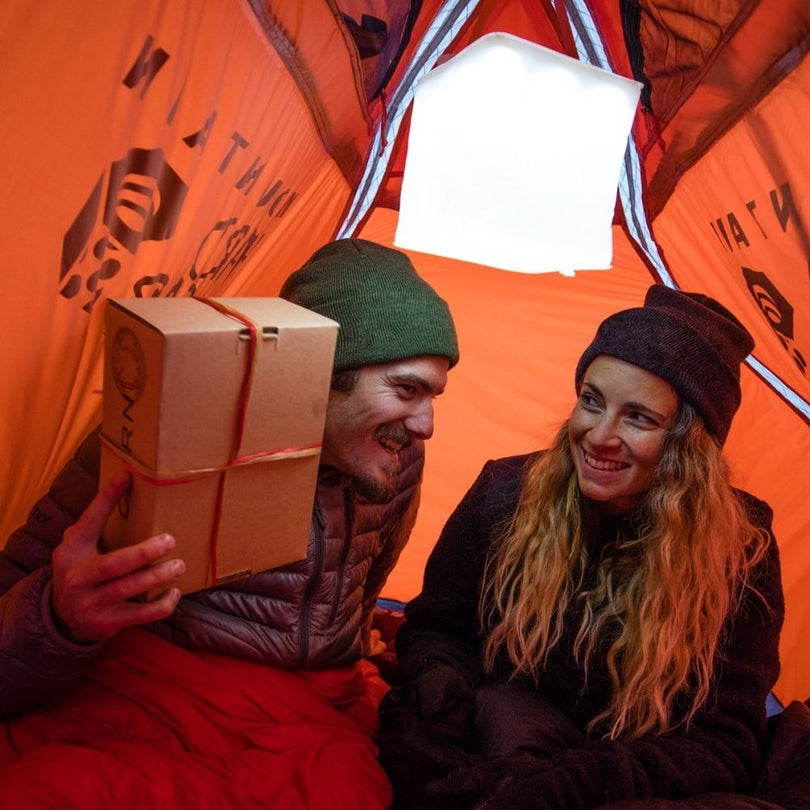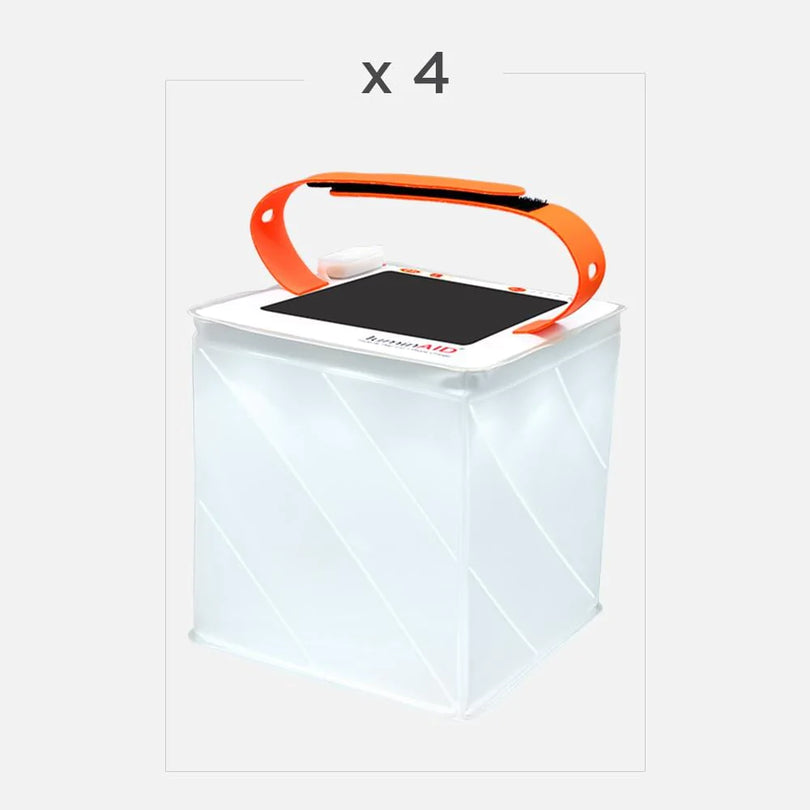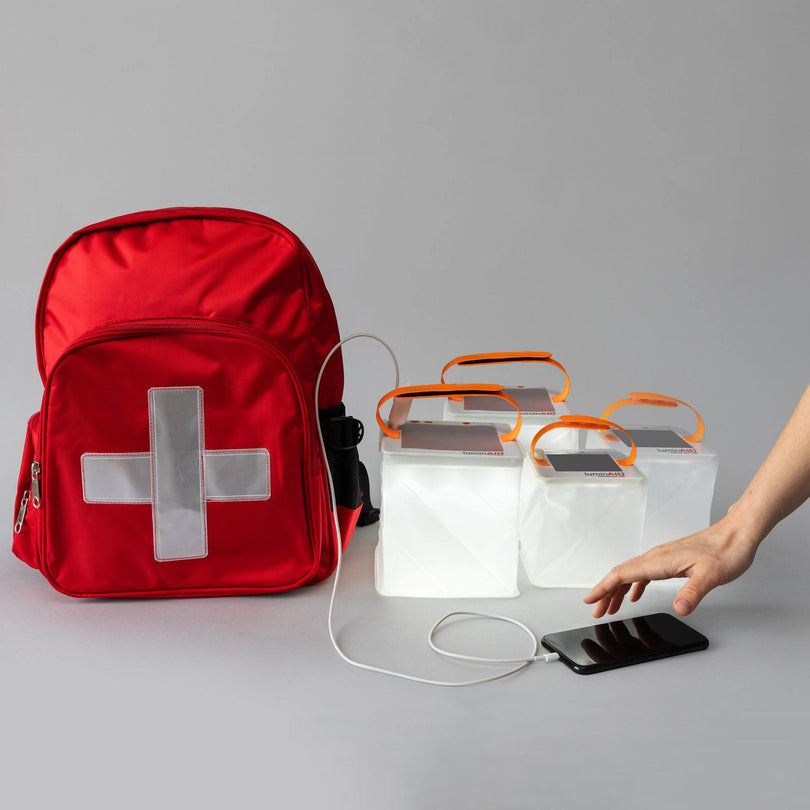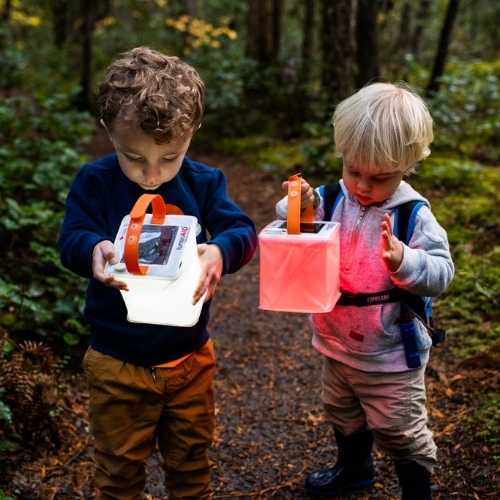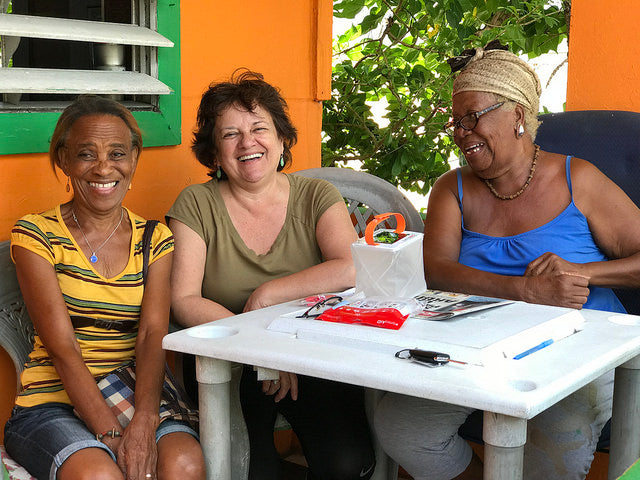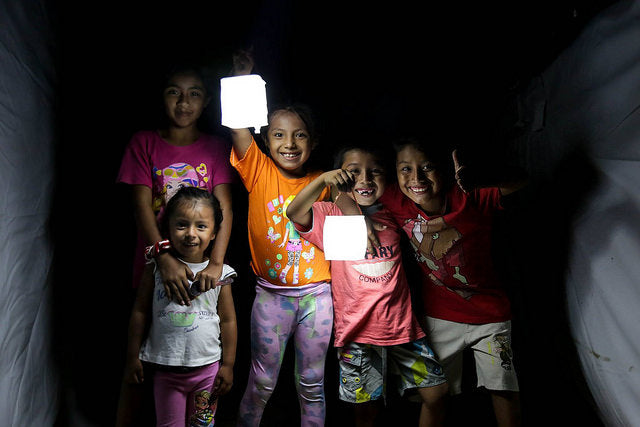An estimated 85,000 health clinics in developing countries lack dependable electricity. Without access to electricity or other clean lighting options, health providers in these areas struggle to provide life-saving care after dark. Particularly in rural areas, solar lighting can relieve the financial burden associated with fuel-based light sources, and allow these health clinics to focus precious funds on improving care.

Red Cross Mexico responds to earthquakes near the capital city
Portable solar lanterns can help these health workers provide safe responses to health emergencies that begin or extend into the night. Rural women’s health care—and midwifery services in particular-—can benefit from portable solar lighting as a safe resource for health care in energy poor communities, without risk of fire or fumes endangering the health of the patients.
LuminAID observed these effects in Madagascar last year, where only a third of women give birth in a designated medical facility. When the sun goes down, many of these medical centers rely on fuel-based light sources, which are costly and dangerous for both patients and community health workers. Seeing this problem, Gosford North Rotary Club (GNRC) and Thrive Madagascar distributed 1,183 LuminAID lanterns to energy poor areas of Madagascar. These organizations implemented the solar lights into community health workers training programs, which equip local women with the tools and knowledge to assist in home deliveries for their village. With access to safe and sustainable light, it became easier and cheaper for women to improve the health of soon-to-be mothers in their community, especially those without access to childbirth in a medical facility.
In Nepal, LuminAID solar lights have been used to light up over 80 maternity units for women just before or after delivering their babies. Safe lighting is a crucial part of effective health services, and portable solar lights are a powerful response to the need for safe and versatile lights for health workers in energy poor communities. Portable lighting in particular is an asset for practitioners who perform house calls and small scale clinics who provide crucial but under-funded services.

Dentists in Panama perform procedures will into the night by the light of LuminAID lanterns.
Humanitarian organization Save the Children recently brought LuminAID lights to the Dombe health facility, one of many Mozambican clinics left without power in the aftermath of Cyclone Idai. With no source of safe light, the staff struggled to keep up with an influx of local patients, especially after sunset. Save the Children saw how the lack of light inhibited the Dombe health facility’s ability to treat the community, and worked with LuminAID to send solar lanterns and phone chargers their way. The lights allowed health facility staff to read medical labels and restored their ability to fulfill house calls after dark, demonstrating the utility provided by portable light in energy poor communities.
Light also plays a role in providing access to other basic needs, such as clean drinking water. GlobalMedic sent a rapid response team to Indonesia last year after catastrophic earthquakes and tsunamis displaced hundreds of thousands and damaged critical infrastructure. First responders used LuminAID lanterns and phone chargers while they purified water in remote areas, illuminating their efforts as they moved between remote areas. The GlobalMedic team also provided hygiene supplies and water purification systems to local families. Light allowed GlobalMedic to distribute water, showing that light is only one piece of the equation in ensuring healthcare access for all.

GlobalMedic’s Rapid Response team was deployed to Indonesia, using LuminAID to illuminate the remote areas in which they distributed hygiene supplies and water purification systems.
Healthcare is always a priority, not just after disasters. That’s why our humanitarian partner Mission Save A Smile has been traveling to Panama for twelve years, providing dental care to the indigenous Guna tribe. They operate out of a building with a thatched roof and dirt floors, and rely on generators to power their dental equipment. LuminAID lanterns allow Mission Save A Smile to conserve energy, so that their generators can keep their dental care running smoothly without having to power the lighting. With portable lighting, they can make the most of their short time in Panama by providing dental care to the Guna tribe long after the sun sets.
Through the Give Light Light program, together we are able to improve the prospects of brilliant futures for families around the world. Thanks to our humanitarian partners, we have seen the impact safe light can have on the health of communities around the world.
Sources
See LuminAID field report on a partnership with UNFPA Nepal.
Mills, Evan. "Identifying and reducing the health and safety impacts of fuel-based lighting." Energy for Sustainable Development 30 (May 2, 2015): 39-50. http://dx.doi.org/10.1016/j.esd.2015.11.002.

